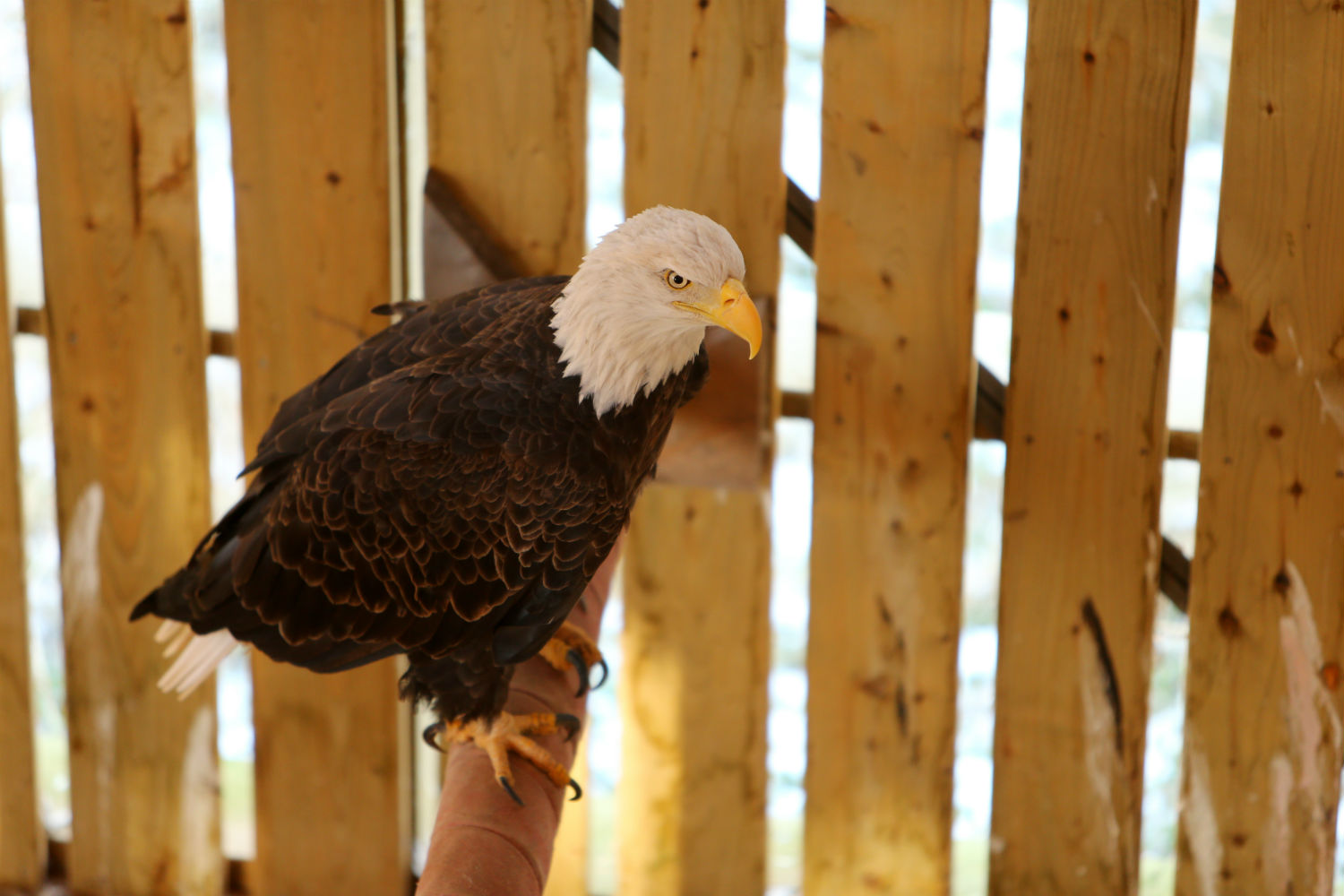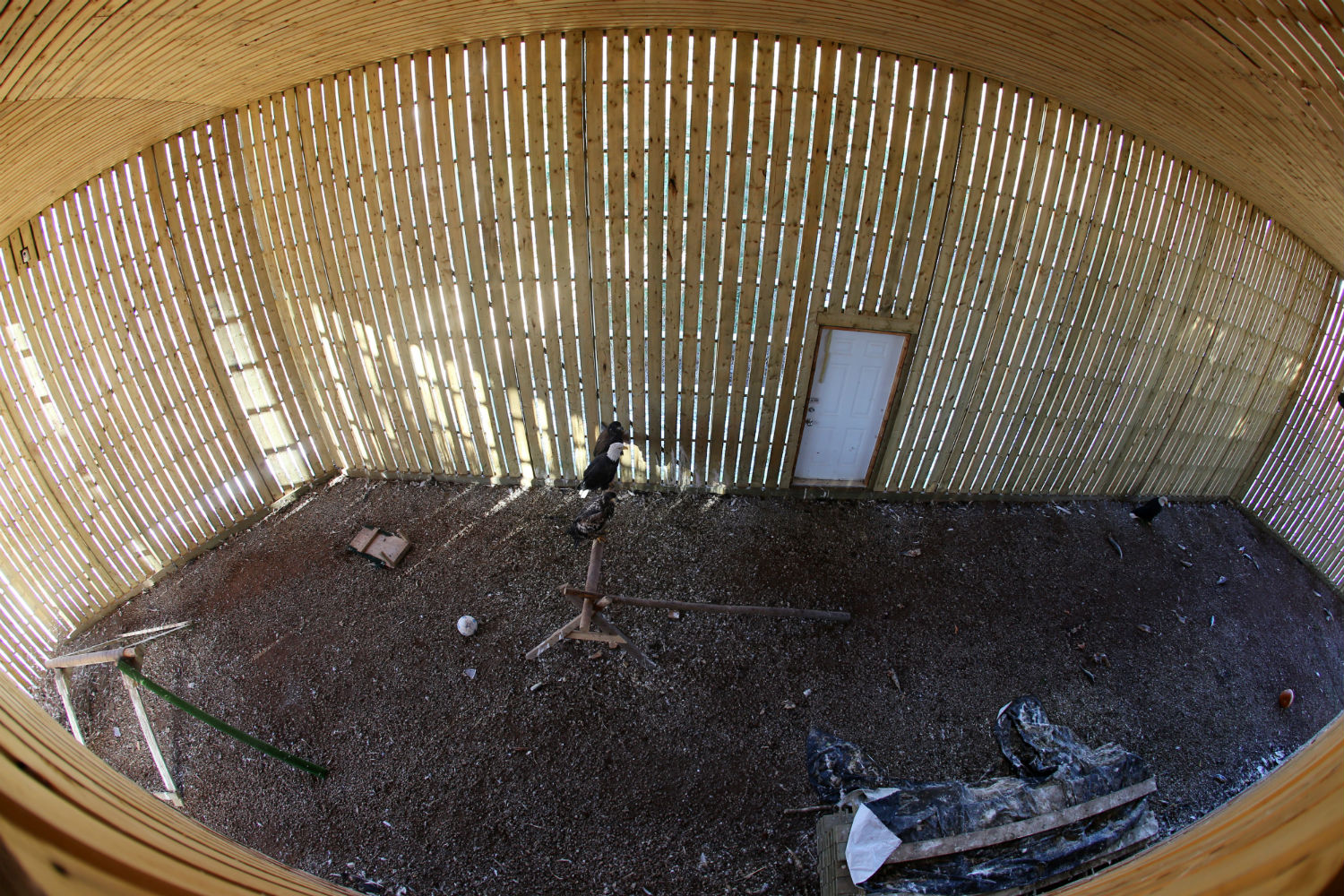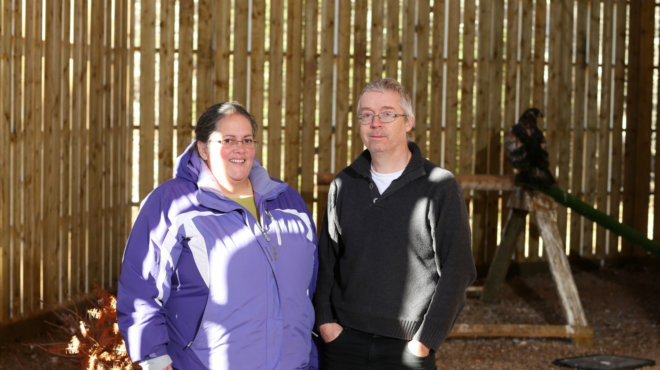
Helene Van Doninck (BSc (Agriculture)’88): Animal activist
By Mark Campbell
People often ask Helene Van Doninck (BSc (Agriculture)’88) why she has devoted her life to the rehabilitation of injured wildlife instead of letting nature take its course.
“Being hit by a car is not nature,” she counters. “Nor is flying into a closed window, or being attacked by someone’s well-fed housecat. We think nothing of having safety nets for people, or domestic animals, but for years, there wasn’t anything comparable for wildlife in distress. I thought ‘I have a skillset where I can make a difference, so why not?’”
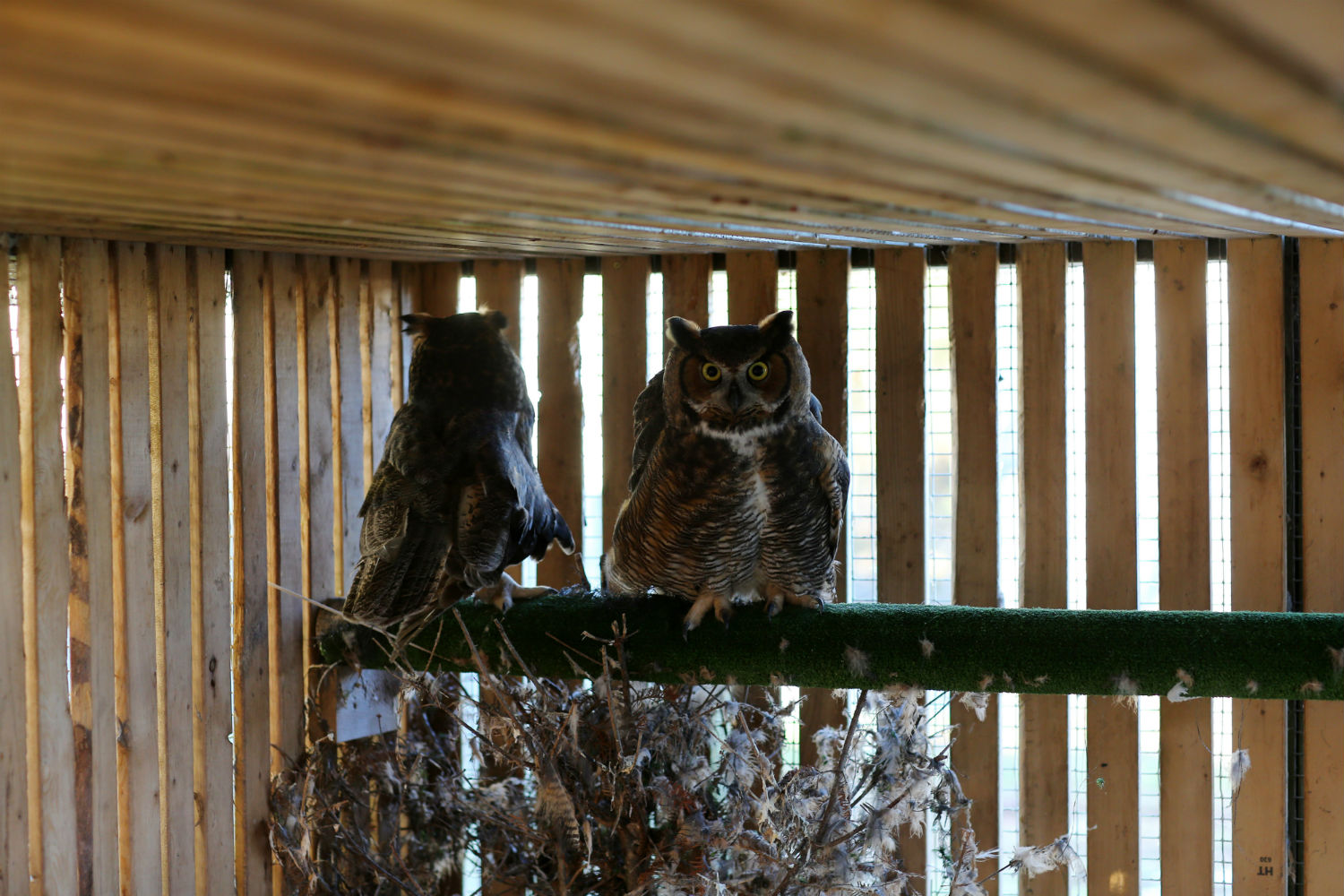 That realization led Van Doninck to launch the Cobequid Wildlife Centre with her husband, Murdo Messer, in 2001. Located in Hilden, NS, Van Doninck and her small but dedicated team of volunteers provide rehab services to approximately 400 animals—all bird species from hummingbirds to bald eagles, small mammals, and reptiles—each year. Van Doninck says they are able to successfully return their ‘patients’ to the wild approximately 70 per cent of the time.
That realization led Van Doninck to launch the Cobequid Wildlife Centre with her husband, Murdo Messer, in 2001. Located in Hilden, NS, Van Doninck and her small but dedicated team of volunteers provide rehab services to approximately 400 animals—all bird species from hummingbirds to bald eagles, small mammals, and reptiles—each year. Van Doninck says they are able to successfully return their ‘patients’ to the wild approximately 70 per cent of the time.
“It’s never easy to cope with losses,” Van Doninck says. “But if we can at least ensure every animal is warm, comfortable, and fed, that is better than dying in the wild. Regardless, when someone brings an animal in, we do our best to give it a second chance.”
Valuable connections
Interested in animals from an early age, Van Doninck, set her sights on becoming a veterinarian in high school, which led her to Dalhousie University’s Agricultural Campus (formerly the Nova Scotia Agricultural College) for undergraduate studies.
“It was an incredible experience,” Van Doninck says. “I got the education I needed to enter a veterinary school. But more than that, I made lifelong friends with students and faculty, and I’ve been invited back as an instructor and speaker to encourage a new generation of students to intervene in the health of our wildlife. It’s a great feeling to continue that connection.”
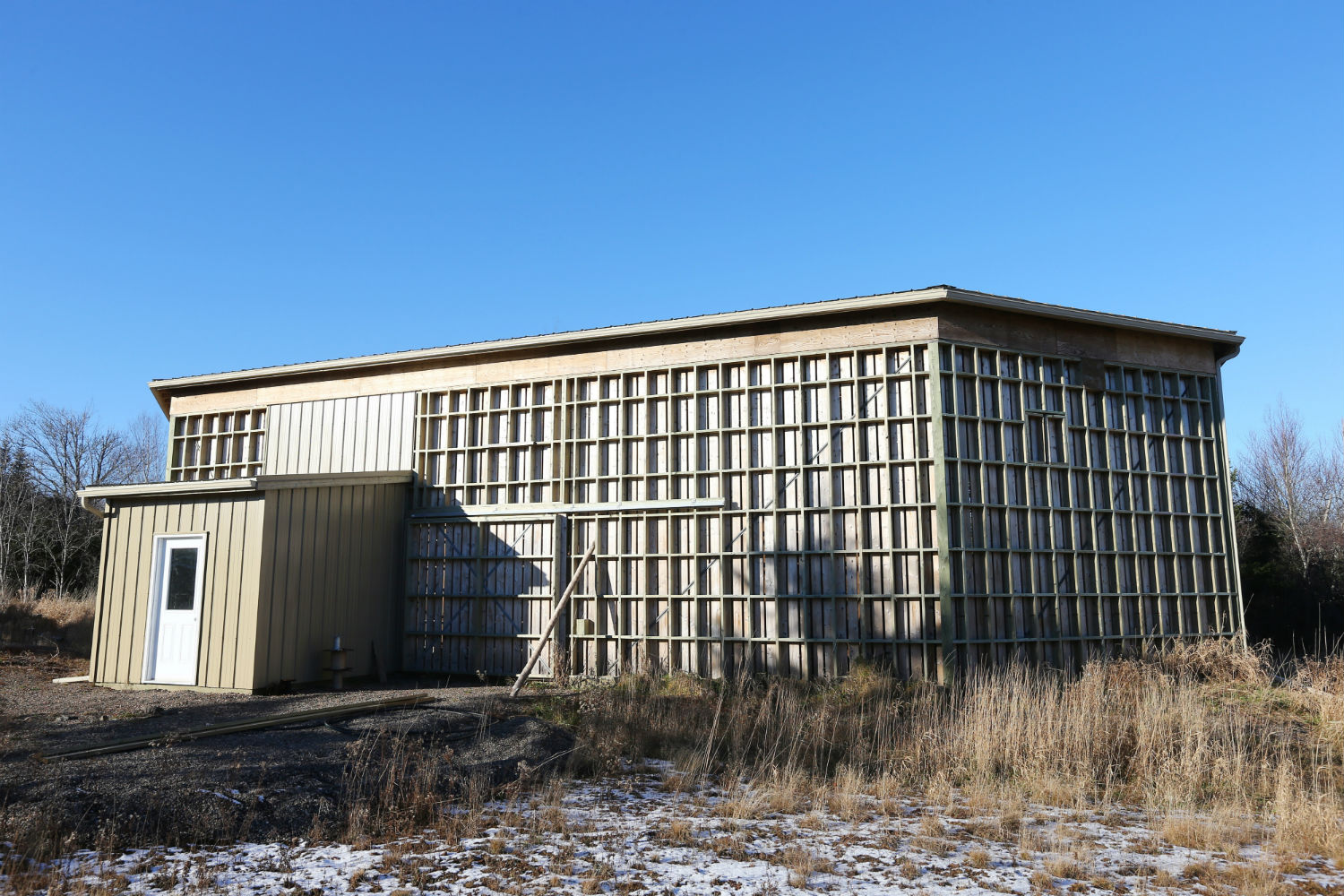 Van Doninck began her interventions in the 1990s while working as a veterinarian in Newfoundland and Labrador. “I was volunteering at a wildlife park and people often brought us injured animals,” Van Doninck says. “The more time I spent treating them, the more gaps I saw in care. When I returned to Nova Scotia, I decided to start the Centre as a side project, but it became a full-time focus, so I guess I’m a ‘go-big-or-go-home’ person.”
Van Doninck began her interventions in the 1990s while working as a veterinarian in Newfoundland and Labrador. “I was volunteering at a wildlife park and people often brought us injured animals,” Van Doninck says. “The more time I spent treating them, the more gaps I saw in care. When I returned to Nova Scotia, I decided to start the Centre as a side project, but it became a full-time focus, so I guess I’m a ‘go-big-or-go-home’ person.”
Compassionate advocate
You can see that determination to go big in the Centre’s Bald Eagle Flight Recovery Centre, which Van Doninck initially worried might be too large to suit her purposes. (“I thought ‘what if this thing sits empty?’,” she says. “But we have 11 eagles in there right now, so it was more like ‘if you build it they will come.’”) You can also see it in the work she does outside the clinic as a part-time veterinarian, an oiled wildlife consultant to the oil and gas industry, and as a spokesperson raising awareness about the dangers of lead ammunition through her involvement in the Nova Scotia Federation of Anglers and Hunters.
“People say to me, ‘You must have an agenda,’” Van Doninck says. “And I reply, ‘Yes, I don’t want people and wildlife to be poisoned by lead.’ The ability to say the Federation is behind me gives my background and knowledge additional credibility.’”
Changing minds and making a difference
Such is Van Doninck’s credibility and success in changing minds that she helped the Halifax Wildlife Association set up one of the first ammunition exchange programs in North America. Now, hunters around the world are reaching out to her for assistance in establishing their own awareness campaigns. That interest and the fact that more people are bringing injured animals to the Cobequid Wildlife Centre give Van Doninck confidence that her efforts do make a difference for our province’s, and the world’s, wildlife.
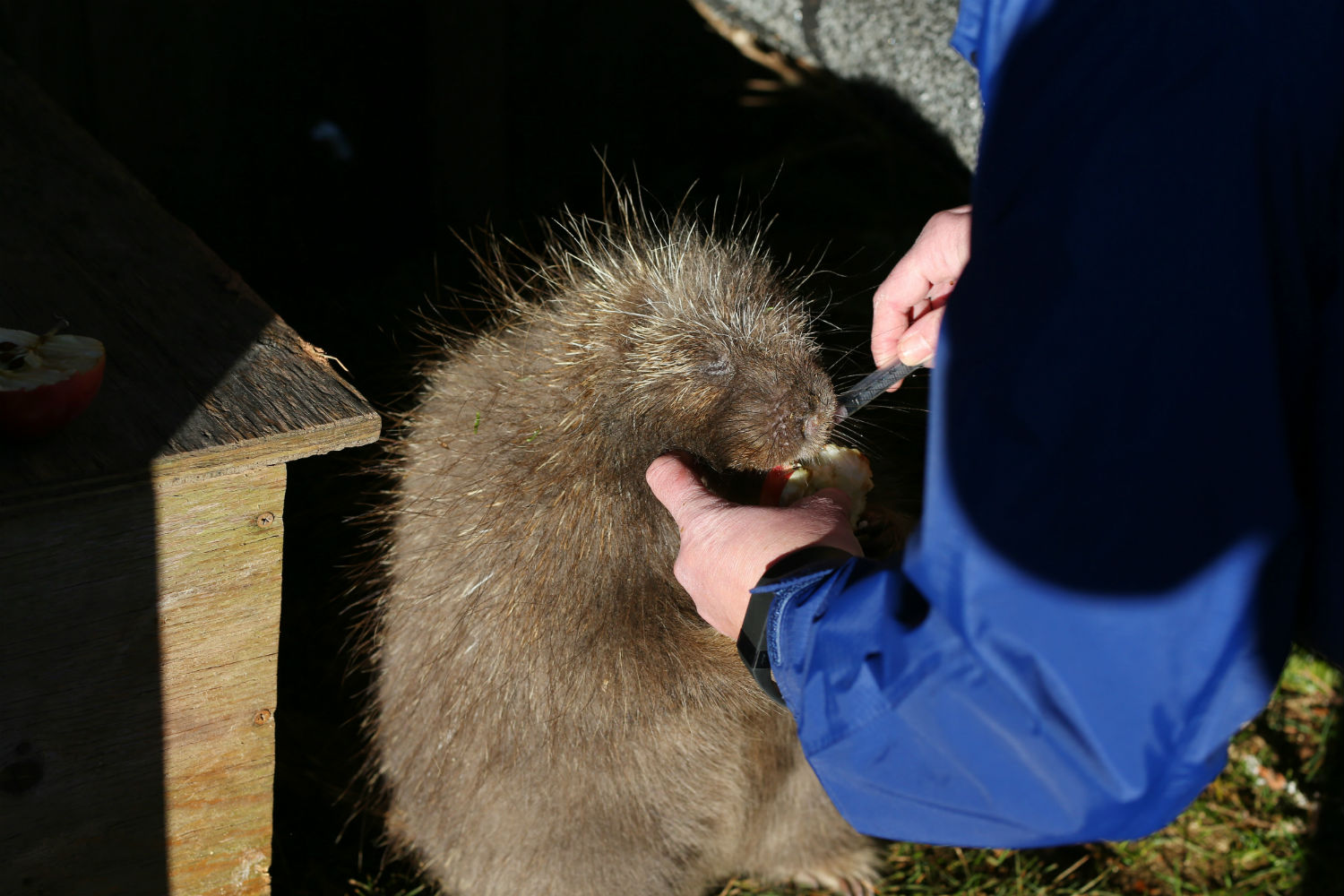 “I want to encourage people to give wildlife the same respect that they would give to any other living creature that is injured or needs help,” Van Doninck says. “But more than that, I would love it if people took ownership over the things they do that endanger species or contribute to loss of habitat. It could be as simple as picking up trash so animals do not get tangled, but if I can convince more people to think about and change the habits that have an impact on our wildlife, that would be wonderful.”
“I want to encourage people to give wildlife the same respect that they would give to any other living creature that is injured or needs help,” Van Doninck says. “But more than that, I would love it if people took ownership over the things they do that endanger species or contribute to loss of habitat. It could be as simple as picking up trash so animals do not get tangled, but if I can convince more people to think about and change the habits that have an impact on our wildlife, that would be wonderful.”
To donate to the Cobequid Wildlife Rehabilitation Centre or volunteer, please visit www.cwrc.net
Connect with them on social media:
Instagram: CobequidWildlife
Twitter: @CobequiWildlife
Facebook: Cobequid Wildlife Rehabilitation Centre
